Key Takeaways:
- Finding the best probiotic for teenagers is like discovering a treasure chest for their gut health.
- Strains like Lactobacillus acidophilus are the superheroes of the gut, keeping it balanced and the immune system strong.
- The best probiotics for teenagers are natural, safe, and tough enough to survive the stomach's harsh environment.
- We've rounded up the top 5 probiotics that offer the best bang for your buck, taste great, and keep that gut microbiome in check.
Why Probiotics Are a Teen's Best Friend
The teenage years represent a critical "developmental window" where establishing proper health foundations can impact decades of future wellness.
Probiotics – those beneficial bacteria residing within the gut ecosystem – play a pivotal, yet often overlooked role in this process.
For teenage individuals, particularly young women, these supplements function as powerful "health accelerators", providing crucial support for immune function, digestive processes, and even the appearance and condition of the skin.
Probiotics demonstrate remarkable efficacy in both preventing and addressing various digestive complications including diarrhea, constipation, and irritable bowel syndrome.
They perform the essential function of balancing the gut microbiome, actively repelling harmful bacterial invaders, and facilitating the production of vital nutrients.
Furthermore, they possess the capability to mitigate challenging issues such as IBS, persistent acne eruptions, and undesired weight accumulation.
Understanding Probiotics
Consider probiotics as the "invisible workforce" operating within your teenager's digestive system, constantly laboring to maintain optimal health – yet wholly "concealed from view".
These living microorganisms, when consumed in sufficient quantities, deliver numerous "high-value" health benefits that many parents remain completely unaware of.
They serve as the cornerstone of a properly functioning gut microbiome, which itself forms the foundation for robust immune response, efficient digestive processes, and overall systemic wellness.
These beneficial bacterial colonies can be sourced from fermented food products including yogurt, kefir, and sauerkraut, as well as through specialized probiotic supplement formulations.
5 Best Probiotics for Teenagers
#1: Physician Choice 60 Billion Probiotic
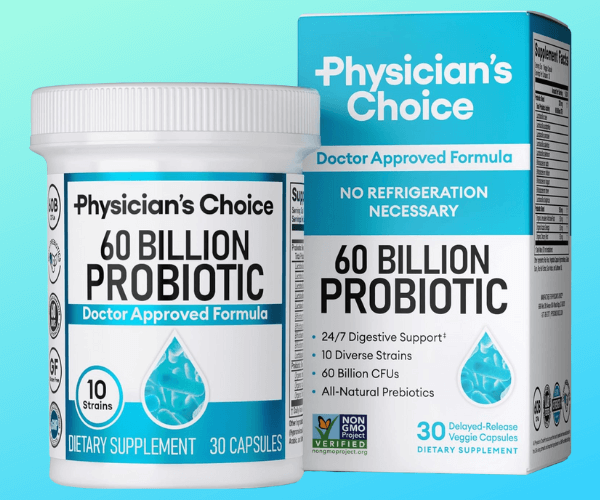
Read more
Physician's Choice 60 Billion Probiotic is a robust supplement designed to support gut health, immune function, and overall wellness with its potent blend of 10 probiotic strains and organic prebiotic fiber.
This powerhouse aims to restore the natural balance of your gut flora, enhancing nutrient absorption and offering comprehensive digestive support.
Exclusive Insights:
· Potent Blend: With 60 billion CFUs and 10 different strains, it offers a broad spectrum of support for your digestive system.
· Added Prebiotic Fiber: Contains organic prebiotic fiber that helps nourish the probiotics, enhancing their effectiveness and survival rate.
· Shelf-Stable: No refrigeration required, making it convenient for travel or on-the-go use, though some users report capsules can clump together in humid conditions.
Pros:
· High potency formula for comprehensive gut health support.
· Includes prebiotics for enhanced probiotic function.
· Shelf-stable and easy to take on the go.
Cons:
· Capsules may clump in humid environments.
· Some users may experience initial digestive discomfort as their body adjusts.
Customer Review:
"I've been on a quest to improve my gut health, and after trying several brands, Physician's Choice 60 Billion Probiotic has been a game-changer for me. I was initially drawn to it because of the high CFU count and the inclusion of prebiotics, and it hasn't disappointed.
Within a couple of weeks, I noticed less bloating and more regular digestion. I was a bit worried about the capsules clumping, as I live in a humid area, but keeping them in a cool, dry place has worked out fine.
It's also been a relief not to worry about refrigeration. Highly recommend for anyone looking to boost their digestive health!"
The Best Probiotic Strains for Teen Health: Lactobacillus Acidophilus
It's crucial to understand that not all probiotic formulations deliver equal benefits – and selecting the wrong option could cost your teenager thousands of beneficial bacteria that never reach their intended destination.
Strains such as Lactobacillus acidophilus represent the "gold standard" for teenage supplementation, renowned for their ability to survive the journey through hostile stomach acids and deliver substantial digestive health improvements.
Bifidobacterium stands as another "powerhouse performer", actively promoting healthy digestive function and regularity. Be vigilant about ensuring adequate CFU (Colony Forming Units) counts to guarantee maximum effectiveness – anything less could result in severely diminished benefits.
#2: Culturelle Pro Strength Digestive Daily Probiotic
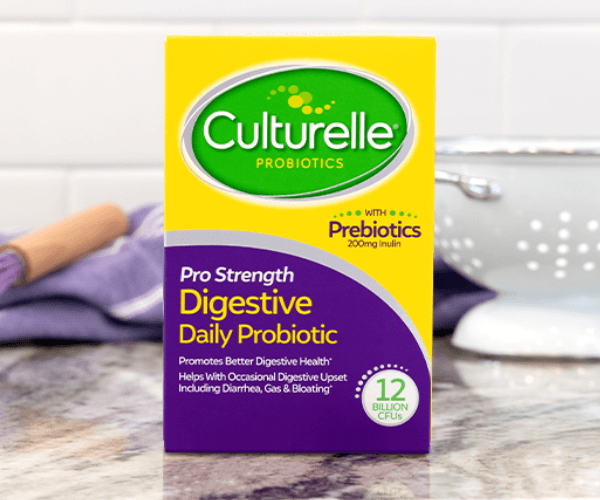
Read more
Culturelle Pro Strength Digestive Daily Probiotic is designed to promote a healthy digestive system and enhance your overall immune response.
Each capsule contains 10 billion CFUs of the clinically studied Lactobacillus rhamnosus GG strain, ensuring your gut gets the beneficial bacteria it needs.
Exclusive Insights:
· Clinically Proven Strain: The Lactobacillus rhamnosus GG strain is one of the most studied probiotic strains, known for its effectiveness in supporting digestive health and immune function.
· Daily Support: Formulated for daily use, this probiotic is aimed at maintaining digestive balance and supporting a healthy immune system over time.
· Allergy-Friendly: Culturelle Pro Strength is free from dairy, gluten, and sugar, making it a great option for individuals with dietary restrictions.
Pros:
· The use of a clinically proven strain provides confidence in the product's efficacy.
· Suitable for daily use, making it easy to incorporate into your routine.
Cons:
· With 10 billion CFUs, it may be less potent than some other options on the market.
· Focused on a single strain, which might limit the breadth of gut flora support compared to multi-strain formulas.
Customer Review:
"After years of digestive discomfort and trying different dietary changes and supplements, I finally found relief with Culturelle Pro Strength Digestive Daily Probiotic. The single-strain focus worried me at first, but the Lactobacillus rhamnosus GG has truly made a difference.
My digestion has improved remarkably, and I appreciate that it's allergy-friendly since I'm lactose intolerant. It's become a non-negotiable part of my daily health routine!"
Probiotics and Teenage Skin Health
The appearance of teenage acne can create significant emotional distress, and mounting evidence suggests probiotics may offer a "hidden solution" that many dermatologists fail to discuss.
The gut-skin axis – a biological connection many parents remain unaware of – indicates that properly balanced gut microbiota directly contributes to clearer skin appearance.
Probiotics function by reducing systemic inflammation, a primary contributing factor in acne development.
For teenagers struggling with persistent skin eruptions, high-quality probiotic supplementation presents a natural intervention that could eliminate thousands of dollars in unnecessary dermatological treatments.
Probiotics and Teen Skin: A Match Made in Heaven
Teenagers often face skin battles like acne, and probiotics can be their secret weapon.
By restoring balance in the gut, probiotics help reduce inflammation and promote clearer skin.
Plus, those that resist stomach acid can reach the GI tract and work their magic.
Prebiotics: The Sidekick to Probiotics
Prebiotics function as the essential "fuel supply" for probiotic bacteria, dramatically enhancing their effectiveness when properly combined.
An increasing number of probiotic formulations designed specifically for teenagers now incorporate these prebiotic components, resulting in significantly improved outcomes for both gut health and immune system function.
#3: Ora Trust Your Gut High Potency Probiotic & Prebiotic

Read more
Ora Trust Your Gut High Potency Probiotic & Prebiotic is a powerful supplement designed to balance your digestive system and support overall gut health.
With a potent blend of probiotics and prebiotics, this supplement aims to alleviate digestive discomfort, promote nutrient absorption, and enhance immune function.
Exclusive Insights:
· High Potency Formula: Packed with a robust blend of probiotics and prebiotics, it's formulated to quickly restore gut balance and support a healthy microbiome.
· Vegan and Organic: Catering to a wide range of dietary preferences, this supplement is both vegan and made with organic ingredients, ensuring high quality and ethical sourcing.
· Allergy-Friendly: Free from common allergens like gluten, dairy, and soy, making it a safe choice for individuals with sensitivities or allergies.
Pros:
· The high potency formula provides quick and effective results for those struggling with gut imbalances.
· Vegan and organic ingredients cater to ethical and health-conscious consumers.
Cons:
· The price point might be higher compared to other probiotic and prebiotic supplements due to its high-quality, organic ingredients.
· Some individuals might experience initial mild digestive discomfort as their body adjusts to the high potency formula.
Customer Review:
"After months of unpredictable digestive issues and trying various remedies with no success, I was skeptical but desperate when I found Ora Trust Your Gut High Potency Probiotic & Prebiotic. To my surprise, within weeks, my digestion improved, bloating reduced, and I felt a newfound vitality.
It's as if my gut underwent a transformation, improving not just my physical health but my overall quality of life. I'm genuinely impressed and grateful."
Probiotics vs. Probiotic Foods: The Showdown
When evaluating probiotic options for your teenager, should you pursue the supplement route or rely on probiotic-rich food sources?
This decision carries significant implications for long-term health outcomes. Fermented food products including yogurt and kefir represent delicious, natural vehicles for probiotic delivery.
However, for teenagers with selective eating preferences or specific dietary limitations, supplement formulations offer concentrated, precisely measured doses of specific bacterial strains.
These products now come in various "consumer-friendly" formulations, from sugar-free to gluten-free variants, making them exceptionally versatile for diverse teenage needs.

Probiotics and Teen Mood: The Gut-Brain Connection
Are you aware that your teenager's gut health could be silently influencing their emotional state?
The gut-brain axis represents a critical biological communication pathway linking digestive function directly to emotional wellbeing.
Properly selected probiotics can help balance this complex relationship, potentially alleviating stress responses and enhancing mood regulation during this turbulent developmental period.

Probiotics and Allergies: A Gut-Friendly Approach
For teenagers struggling with allergic conditions, probiotics may offer a "transformational intervention" that conventional treatments often fail to provide.
A properly balanced intestinal flora can effectively modulate immune system responses, substantially reducing allergy symptom severity.
When selecting products for allergy-prone teenagers, prioritize hypoallergenic strain variants to prevent triggering unwanted reactions.
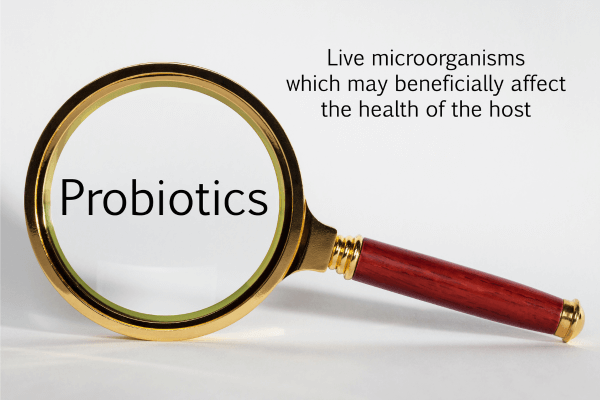
Making Probiotics Part of a Teen's Routine
Integrating probiotics into your teenager's daily health regimen needn't become another point of conflict.
From easily incorporated probiotic powders blended into morning smoothies to palatable chewable formulations, numerous options exist to make implementation "hassle-free" and sustainable.
Success depends entirely on identifying what approach resonates with your particular teenager and establishing a consistent usage pattern.
#4: InnovixLabs Multi-Strain Probiotic
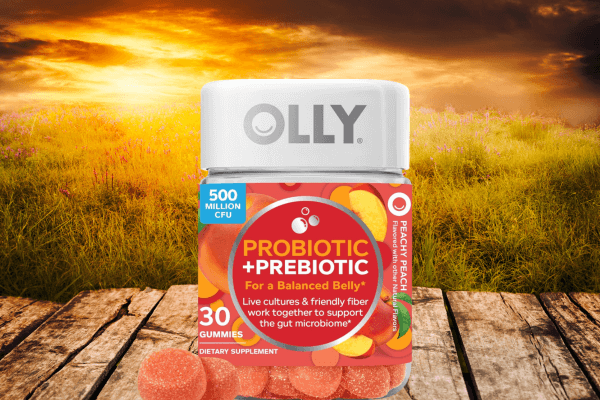
Read more
OLLY Probiotic + Prebiotic Gummy is a delightful and effective way to support your digestive health.
These tasty gummies combine the power of probiotics with the nourishing benefits of prebiotics, creating a harmonious balance that promotes a healthy gut.
With a blend of Bacillus Coagulans and prebiotic fiber, these gummies are designed to enhance your digestive system and overall wellness.
Exclusive Insights:
· Dual Action Formula: Combines Bacillus Coagulans, a resilient probiotic strain, with prebiotic fiber to support and nourish your gut flora.
· Delicious and Convenient: These gummies come in a tasty, chewable form, making them a fun and easy addition to your daily routine.
· No Artificial Flavors or Colors: Made with natural ingredients, these gummies are free from artificial flavors and colors, ensuring a clean and wholesome supplement.
Pros:
· Combines probiotics and prebiotics for comprehensive digestive support.
· Tasty gummy form makes it enjoyable and easy to take.
· Free from artificial additives for a natural approach to gut health.
Cons:
· May not be suitable for those who prefer capsules or tablets.
· Some users might require a higher CFU count for specific digestive concerns.
Customer Review:
"I've always had trouble with pills, so finding OLLY Probiotic + Prebiotic Gummies was a game-changer. They're delicious and have noticeably improved my digestion.
I love the combo of probiotics and prebiotics in one tasty gummy, and the natural ingredients are a huge plus. It's a fun, effective way to support gut health, and I look forward to them daily. Highly recommend for an easy digestion boost!"
The Synergy of Probiotics and a Healthy Lifestyle
Probiotics represent just one component in the complex "wellness equation".
For maximum benefit, these supplements should be paired with balanced nutritional intake, consistent physical activity, and effective stress management techniques.
The objective is creating an internal environment where probiotic bacteria can flourish and effectively support comprehensive wellbeing.
The Science Behind Probiotics
The scientific understanding of probiotic function continues to rapidly evolve, revealing unprecedented potential to enhance intestinal barrier integrity, modulate immune system responses, and deliver numerous additional benefits.
As research initiatives advance, the applications for probiotics within health maintenance and medical intervention continue to expand dramatically.
Probiotics and Immune Health: A Dynamic Duo
A robust immune system stands as a non-negotiable requirement for teenage health, and properly selected probiotics can significantly strengthen these critical defenses.
Through mechanisms including enhanced gut barrier function and sophisticated immune response modulation, they can substantially reduce infection risk and mitigate various health complications.
#5: Nature's Bounty Acidophilus Probiotic
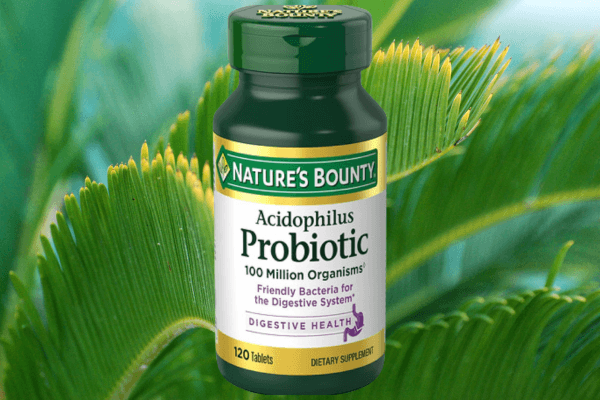
Read more
Nature's Bounty Acidophilus Probiotic is a gentle yet effective supplement designed to promote digestive health and support your body's natural balance.
With its carefully selected strain of Lactobacillus Acidophilus, this probiotic aims to enhance nutrient absorption and maintain a healthy gut flora, contributing to your overall well-being.
Exclusive Insights:
· Targeted Strain: Contains Lactobacillus Acidophilus, a well-researched probiotic known for its ability to support digestive health and balance gut flora.
· Easy-to-Take: Comes in convenient, easy-to-swallow capsules, making it simple to incorporate into your daily routine.
· No Refrigeration Needed: This probiotic is shelf-stable, allowing for easy storage and travel without the need for refrigeration.
Pros:
· Supports digestive health with a targeted probiotic strain.
· Convenient capsule form for daily use.
· Shelf-stable, making it travel-friendly.
Cons:
· May not be suitable for those seeking a multi-strain probiotic.
· Some users might require a higher CFU count for specific health needs.
Customer Review:
"I've been using Nature's Bounty Acidophilus Probiotic for months, and it's been fantastic. I wanted something simple and effective for digestion, and it delivered. My digestion has improved, and I experience less bloating.
The capsules are easy to take, and no refrigeration is needed. It's a no-fuss solution that's made a real difference. Highly recommend for reliable gut health support!"
Choosing the Right Probiotic Supplement
When selecting the optimal probiotic formulation for your teenager, failure to consider critical factors including CFU concentration, specific strains included, and the absence of harmful additives could result in wasted money and missed health opportunities.
Prioritize options specifically designated as "kid-friendly probiotics" and "gummy probiotics" containing natural ingredients and appealing flavor profiles.
Importance of Reading Labels and Looking for Third-Party Certifications
The "hidden danger" in probiotic selection lies in overlooking label information and third-party verification.
These certifications serve as your "insurance policy", confirming the product contains precisely the stated probiotic quantities and remains free from potentially harmful chemical additives.
Respected organizations such as NSF provide these essential certifications – and overlooking them could mean you're paying premium prices for substandard products.
Probiotics and Bowel Regularity: A Natural Solution
For teenagers experiencing bowel regularity challenges, probiotic intervention offers a "natural remedy" without the side effects of conventional treatments.
Strains such as Bifidobacterium actively promote consistent bowel movements and support healthy digestive function – eliminating discomfort that can significantly impact quality of life.
The Convenience of Chewable and Gummy Probiotics
Chewable and gummy probiotic formulations provide a convenient and palatable delivery method for ensuring teenagers receive their daily bacterial requirements.
These products typically incorporate "acid-resistant technology" and offer extended shelf stability – making them ideally suited for busy families with demanding schedules.
Safety and Quality: The Hallmarks of Probiotic Supplements
Safety considerations must remain paramount when selecting supplements for teenage consumption.
Prioritize probiotic products that have undergone rigorous quality assurance testing protocols and remain free from artificial flavoring agents and potentially harmful ingredients – anything less puts your teenager's health at unnecessary risk.
Probiotics and the Teenage Diet: Filling the Gaps
Teenage dietary patterns frequently lack essential nutritional components.
Properly formulated probiotic supplements can help address these deficiencies, supporting overall dietary choices without contributing to undesired weight gain – an important consideration for body-conscious adolescents.
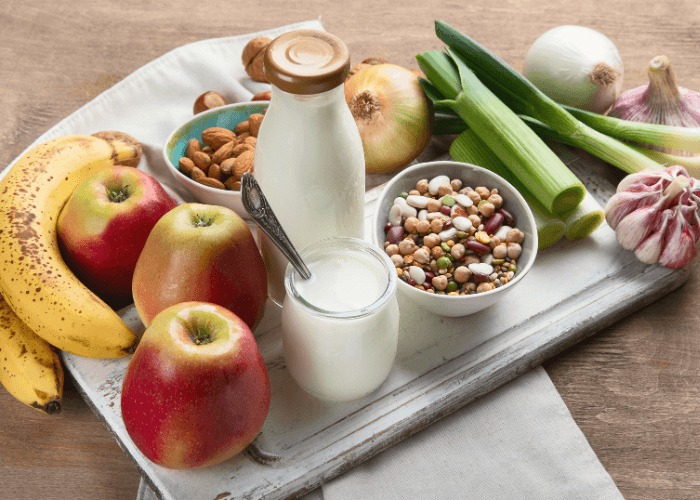
Probiotics and Mental Health: A Supportive Tool
Emerging research strongly suggests a direct correlation between gut health status and mental health outcomes.
Probiotics may deliver measurable improvements in mood regulation while reducing anxiety and depression symptomatology, offering valuable support during the emotionally challenging adolescent period.
The Future of Probiotics: Bright and Promising
As our understanding of probiotic mechanisms and benefits continues to expand, so too does their potential to fundamentally transform health maintenance and wellness approaches.
From personalized probiotic medicine to novel health applications, the future landscape of probiotic utilization appears extraordinarily promising.
Safety and Efficacy of Probiotics
Side Effects of Probiotics
It's important to recognize that probiotic use can trigger certain side effects, potentially including bloating, gaseous discomfort, and diarrhea.
These manifestations typically present as mild and temporary in nature, however, vigilant monitoring of your teenager's response to probiotic introduction remains essential.
Potential Side Effects and Interactions with Medications
While probiotics generally deliver "high-safety profiles" with substantial benefits, awareness of potential adverse reactions becomes critical, particularly when administered in substantial dosages.
Common side effects include abdominal bloating, excessive gas production, and digestive discomfort.
In rare instances, probiotics can interact with specific medications, such as blood-thinning agents, potentially reducing their therapeutic effectiveness – a scenario that could lead to "serious and unintended consequences".

Probiotics and B-Vitamins
Certain probiotic strains demonstrate the remarkable capability to synthesize B-vitamin compounds, which play crucial roles in cellular energy production.
This represents a particularly valuable benefit for physically active teenagers requiring additional energy reserves to support their demanding lifestyle requirements.
Gut Health and Adolescence
Hormonal Changes
The teenage years involve dramatic physical transformations driven by hormonal fluctuations.
Probiotics can perform a vital regulatory function during this transition by supporting optimal gut health, which in turn can help normalize hormone levels – creating a "stabilizing effect" during this tumultuous period.
Emotional Challenges
Adolescents frequently encounter emotional difficulties stemming from rapidly shifting hormonal states.
Probiotic supplementation can help mitigate mood swing severity by promoting healthy gut-brain axis function – a connection many parents and teenagers remain completely unaware of.
Diet and Acne
Poor dietary choices high in sugar content can severely disrupt gut bacterial balance and trigger inflammatory responses manifesting as acne eruptions.
Probiotics combat this destructive cycle by fostering a healthy intestinal environment, reducing systemic inflammation, and potentially delivering significant improvements in skin appearance and texture.
Stress and Gut Health
Teenagers typically experience elevated stress levels, which can dramatically impact digestive function.
Properly selected probiotics help restore balanced gut ecology, minimizing the negative effects of chronic stress on the digestive system – effects that could otherwise lead to "long-term health complications".
Final Thoughts
Probiotics represent an essential "health cornerstone" for teenagers, delivering enhanced digestive function, improved immunity, better skin appearance, and increased mental wellbeing.
The most effective probiotic options for teenage consumption should incorporate key strains including Lactobacillus acidophilus and Bifidobacterium, demonstrate resistance to stomach acid degradation, and avoid potentially harmful additive ingredients.
We've conducted comprehensive analysis of the top five probiotic products for teenage use, providing options that deliver superior gut and immune system support.
From chewable formulations to sugar-free variants, suitable options exist for every teenage individual.
Consistent probiotic administration enables parents to promote balanced gut microbial populations and robust health outcomes in their children – an investment that could prevent thousands in future healthcare expenditures.

Ad Sponsor
Probiotic FAQ’s
What are the signs you need probiotics?
There are many signs that you may need probiotics, including digestive issues such as diarrhea, constipation, and bloating; skin problems such as acne, eczema, and rosacea; respiratory problems such as asthma; and a weakened immune system.
Additionally, if you regularly experience gas, heartburn, or indigestion after eating, then you may also benefit from taking probiotic supplements too.
Who should not take probiotics?
Probiotics supplements should not be taken by people who are severely ill, have a weakened immune system, or suffer from a serious illness.
People taking antibiotics or other medications should also consult their doctor before taking probiotics supplements.
What are the signs you need probiotics?
There are many signs that you may need probiotics, including digestive issues such digestive illnesses such as diarrhea, constipation, irritable bowel syndrome, and bloating; skin problems such as acne, eczema, and rosacea; respiratory problems such as asthma; and a weakened immune system.
Additionally, if you regularly experience gas, heartburn, or indigestion after eating, then you may also benefit from probiotic supplements.
Who should not take probiotics?
Probiotics supplements should not be taken by people who are severely ill, have a weakened immune system, or suffer from a serious illness.
People taking antibiotics or other medications should also consult their doctor before taking probiotics supplements.
What age should you start taking probiotics?
Probiotics can be taken at any age, and there is no one-size-fits-all answer. Some people, such as probiotics for 13 year old, may need them earlier in life if they have a history of digestive problems, while others may not need them until they reach an older age and start to experience other health problems or issues related to their gut bacteria.
Probiotics are beneficial bacteria that can help to improve gut health. They can be beneficial for both adults and children, and they can be taken in the form of supplements or through certain foods (such as yogurt).
Can teenagers take the same probiotics as adults?
Yes, teenagers can often take the same probiotics as adults, but it's important to choose a supplement that's appropriate for their age and health needs. Some probiotics are specifically formulated for teenagers and may be more beneficial for them.
However, probiotics for teens should also be free of allergens and dairy products. And finally, teens' probiotics should be enjoyable to eat, with fun flavors and colors that will get them excited about taking their probiotic supplement every day.
Are there any side effects of taking probiotics for teenagers?
Probiotics are generally safe for teenagers, but some may experience mild side effects such as bloating or gas when they first start taking them. These symptoms usually subside as the body adjusts to the new beneficial bacteria.
Does gas mean your gut is healthy?
Not necessarily. Gas can be a sign that your gut is healthy, but it can also be a sign that your gut is unhealthy.
Gas occurs when the bacteria in your stomach acid gut ferment the food you eat. This fermentation process produces gas, which is then expelled from your body through the rectum and anus.
If you're not eating enough fiber, the bacteria strains in your gut will have nothing to ferment, and therefore will not produce any gas. This can lead to constipation and other digestive problems.
On the other hand, if you're eating too much fiber, the bacteria in your gut will have too much food to ferment, and will therefore produce too much gas. This can lead to diarrhea and other digestive problems.
Why do I feel bloated all the time and my stomach enlarged?
Some common causes of excessive gas production include eating too quickly, drinking carbonated beverages, smoking, chewing gum, and eating high-fiber foods.
If you suspect that one or more of these dietary habits are causing your bloating and stomach enlargement, then try to avoid them.
You may also want to take a probiotic supplement to help increase the levels of healthy bacteria in your gut.
This will help to break down food more efficiently and reduce gas production.
Do probiotics need to be taken continuously?
It depends on the probiotic and the reason for taking it. Some probiotics can be taken intermittently, while others need to be taken continuously in order to achieve their desired effect.
For example, some probiotics for kids and teenagers are necessary for gut health and can be taken every day, while other probiotics may be used occasionally to fight off a specific infection.
Speak with a healthcare professional to determine whether or not a probiotic should be taken continuously.
How can teenagers ensure they're getting the most out of their probiotic supplements?
To get the most out of probiotic supplements, teenagers should follow the recommended dosage, store the supplements as directed to maintain potency, and incorporate a healthy diet rich in fiber to support the probiotics' function.
It's also important to choose high-quality supplements that have been tested for safety and efficacy.
Related Articles:




Looking for the best products? We've got you covered! Our editors have handpicked each item on this list. EisonReports may receive a share of sales or compensation if you choose to make a purchase through the provided links. Reviews have been edited for brevity and clarity. Enjoy discovering products to enhance your life!













